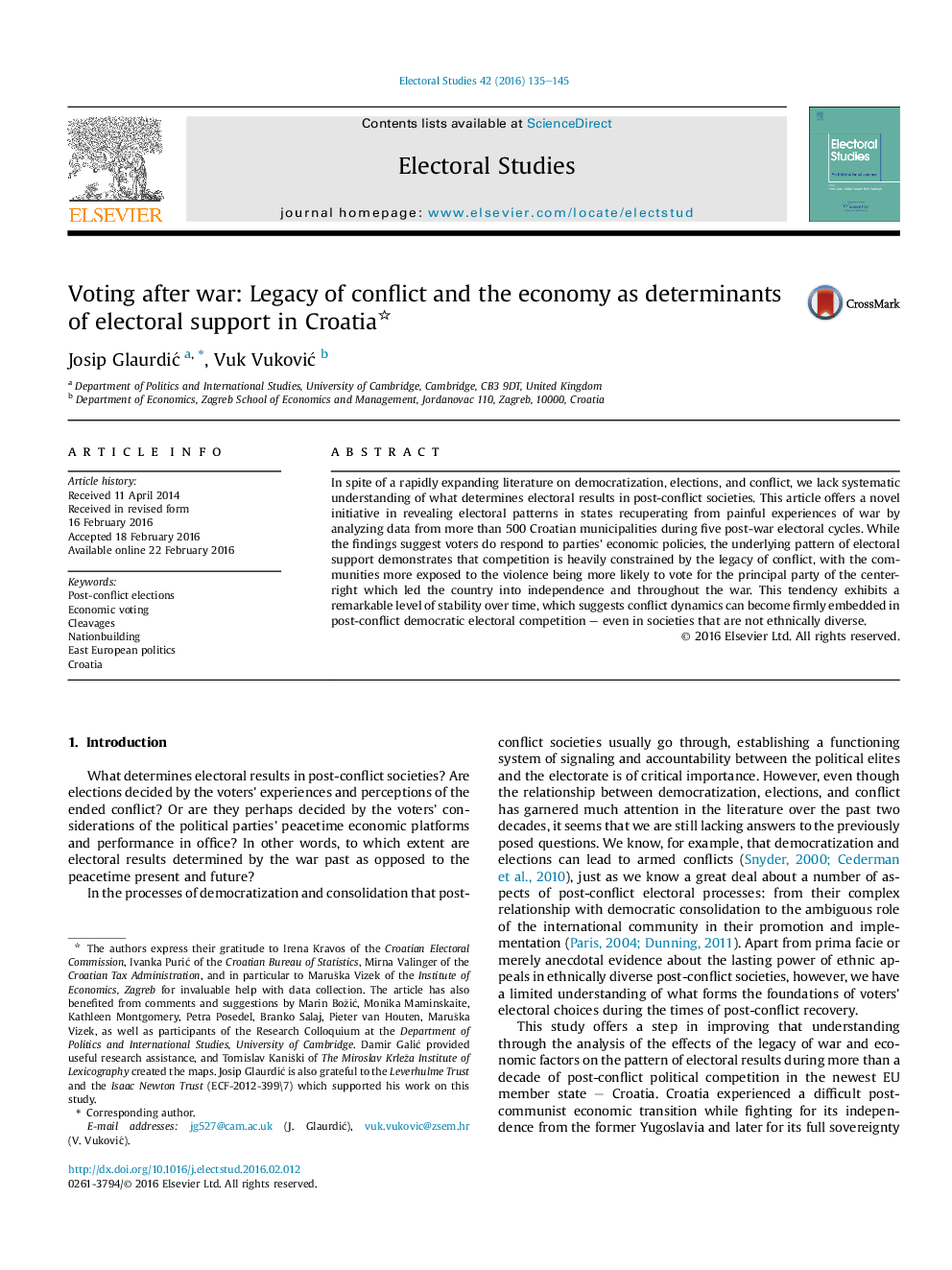| کد مقاله | کد نشریه | سال انتشار | مقاله انگلیسی | نسخه تمام متن |
|---|---|---|---|---|
| 1051679 | 1484951 | 2016 | 11 صفحه PDF | دانلود رایگان |
• We put models of economic voting to the test in five post-war elections in Croatia.
• Voters do respond to parties' economic policies.
• However, electoral competition is heavily constrained by the legacy of war.
• More exposure to violence → more votes for party which led the country during war.
• War dynamics are firmly embedded in post-war democratic electoral competition.
In spite of a rapidly expanding literature on democratization, elections, and conflict, we lack systematic understanding of what determines electoral results in post-conflict societies. This article offers a novel initiative in revealing electoral patterns in states recuperating from painful experiences of war by analyzing data from more than 500 Croatian municipalities during five post-war electoral cycles. While the findings suggest voters do respond to parties' economic policies, the underlying pattern of electoral support demonstrates that competition is heavily constrained by the legacy of conflict, with the communities more exposed to the violence being more likely to vote for the principal party of the center-right which led the country into independence and throughout the war. This tendency exhibits a remarkable level of stability over time, which suggests conflict dynamics can become firmly embedded in post-conflict democratic electoral competition – even in societies that are not ethnically diverse.
Journal: Electoral Studies - Volume 42, June 2016, Pages 135–145
